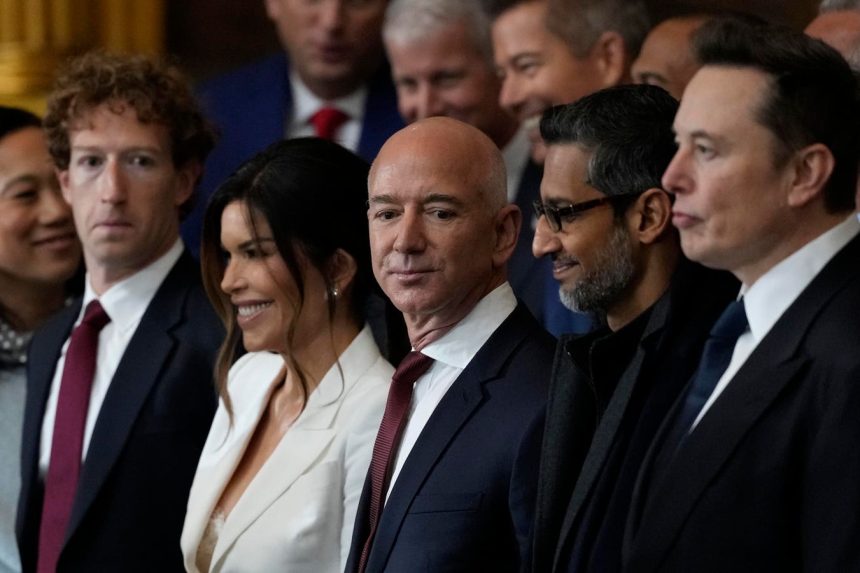The rise of generative AI presents a stark paradox: while marketed as a catalyst for innovation, its development hinges on the systematic exploitation of copyrighted materials, raising profound ethical and legal questions about artistic integrity and intellectual property. Companies like OpenAI and Google, at the forefront of this technological advancement, justify their practices by citing the need for global competitiveness, particularly against China, and by painting a utopian picture of AI solving humanity’s most pressing problems. However, this narrative masks a more troubling reality: the consolidation of power within Big Tech, achieved through the appropriation of creative works without consent or compensation, effectively marginalizing the very artists and creators who drive cultural innovation. This exploitation is often framed as a necessary sacrifice for progress, but it ultimately undermines the foundations of creativity and risks stifling future artistic endeavors.
The illusion of Big Tech’s unparalleled AI prowess was shattered by the emergence of DeepSeek, a small Chinese team that replicated the performance of leading AI models at a fraction of the cost. This “DeepSeek Moment” exposed the inefficiency and inflated valuations of Silicon Valley giants, revealing that their claims of proprietary brilliance were largely unfounded. DeepSeek’s success not only challenged the dominance of U.S. tech companies but also highlighted the hypocrisy of these organizations, which decry open science and disregard copyright laws while simultaneously seeking to protect their own outputs. Their modular and energy-efficient approach further underscored the unsustainable practices of larger corporations, raising concerns about the environmental impact of their resource-intensive AI development. This David-and-Goliath story serves as a potent reminder that innovation can emerge from unexpected sources, challenging the established power structures and prompting a reassessment of the true costs and benefits of AI development.
The narrative surrounding generative AI is riddled with misleading claims and justifications. The argument that copyrighted materials are essential for U.S. military competitiveness is a thinly veiled pretext for dismantling copyright protections. The reality is that military AI applications focus on areas like surveillance and logistics, not on training datasets derived from creative works like novels or paintings. Similarly, the assertion that generative AI will cure cancer or solve other complex problems is pure marketing hyperbole. These exaggerated claims serve to distract from the core issue: Big Tech’s exploitation of creators for profit, masked by a veneer of societal benefit. By framing AI as a panacea, these corporations obscure its limitations and deflect criticism of their exploitative practices, further marginalizing the creators whose work fuels their algorithms.
The Foundation for American Innovation (FAI), a lobbying group advocating for relaxed copyright laws, exemplifies the concerted effort to legitimize the unauthorized use of copyrighted material in AI training. Their argument, centered on the fear of falling behind China in the global AI race, conveniently ignores the lack of effective opt-out mechanisms for creators and the broader implications of undermining intellectual property rights. FAI’s proposals effectively prioritize corporate interests over those of artists, further consolidating power within Big Tech and jeopardizing the future of creative industries. Their rhetoric, while framed in terms of national security, ultimately serves as a smokescreen for policies that benefit large corporations at the expense of individual creators. This approach not only deprives artists of compensation but also disincentivizes the creation of new works, ultimately diminishing the quality of training datasets over time.
The struggle to protect copyright in the digital age is a global challenge. While the EU’s Article 4 of the DSM Directive provides for opt-out systems, its practical implementation has proven inadequate, failing to effectively address the widespread unauthorized use of copyrighted works. Similarly, the UK government’s alignment with Big Tech, under the guise of fostering AI innovation, has led to proposals that prioritize corporate interests over creators’ rights. These policies, often justified by the perceived urgency of the “AI race,” threaten to erode the foundations of intellectual property protection and leave creators vulnerable to exploitation. The superficial consultations with stakeholders and the prioritization of AI adoption over creators’ rights highlight a concerning trend: the exploitation of global competitiveness as a justification for dismantling copyright protections and consolidating power within Big Tech.
The hypocrisy of Big Tech is further exemplified by the actions of companies like Spotify, which aggressively protect their own proprietary systems while simultaneously advocating for weakened copyright laws that enable them to exploit artists’ work. Their substantial contributions to political campaigns and lobbying efforts, often justified as promoting innovation, reveal a calculated strategy to influence policy and prioritize corporate profits over creators’ rights. This double standard underscores the inherent conflict of interest: these companies benefit directly from the free use of copyrighted material while simultaneously denying creators fair compensation. This dynamic perpetuates a system where Big Tech profits at the expense of the artists who fuel their algorithms, highlighting the urgent need for robust policies that protect intellectual property and ensure fair compensation for creative work. The emergence of figures like David Sacks, Trump’s former AI czar, and the influence of venture capitalists like Marc Andreessen further underscore the growing alignment between Big Tech and deregulatory agendas, emphasizing the need for greater scrutiny and advocacy for creators’ rights.



